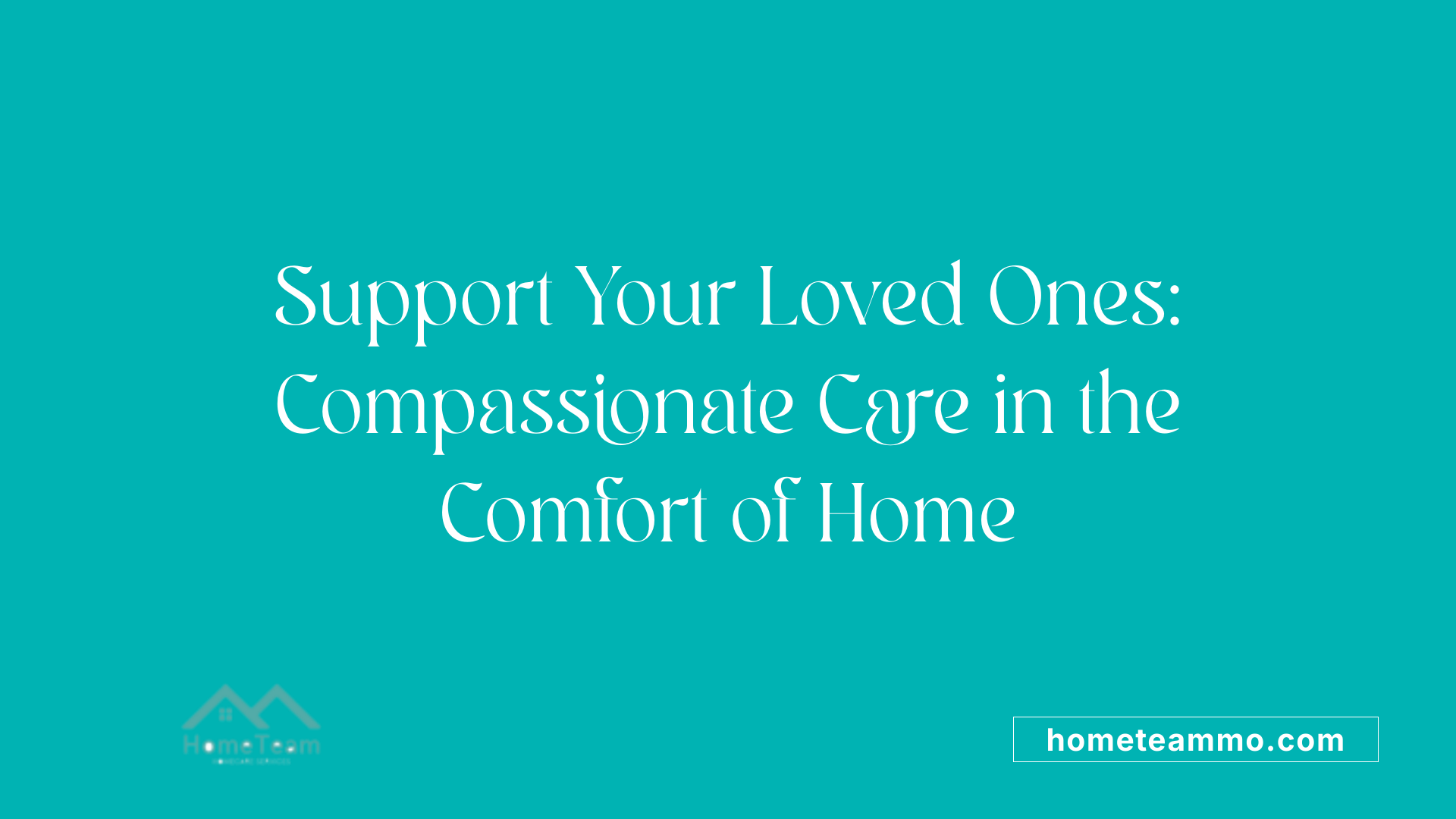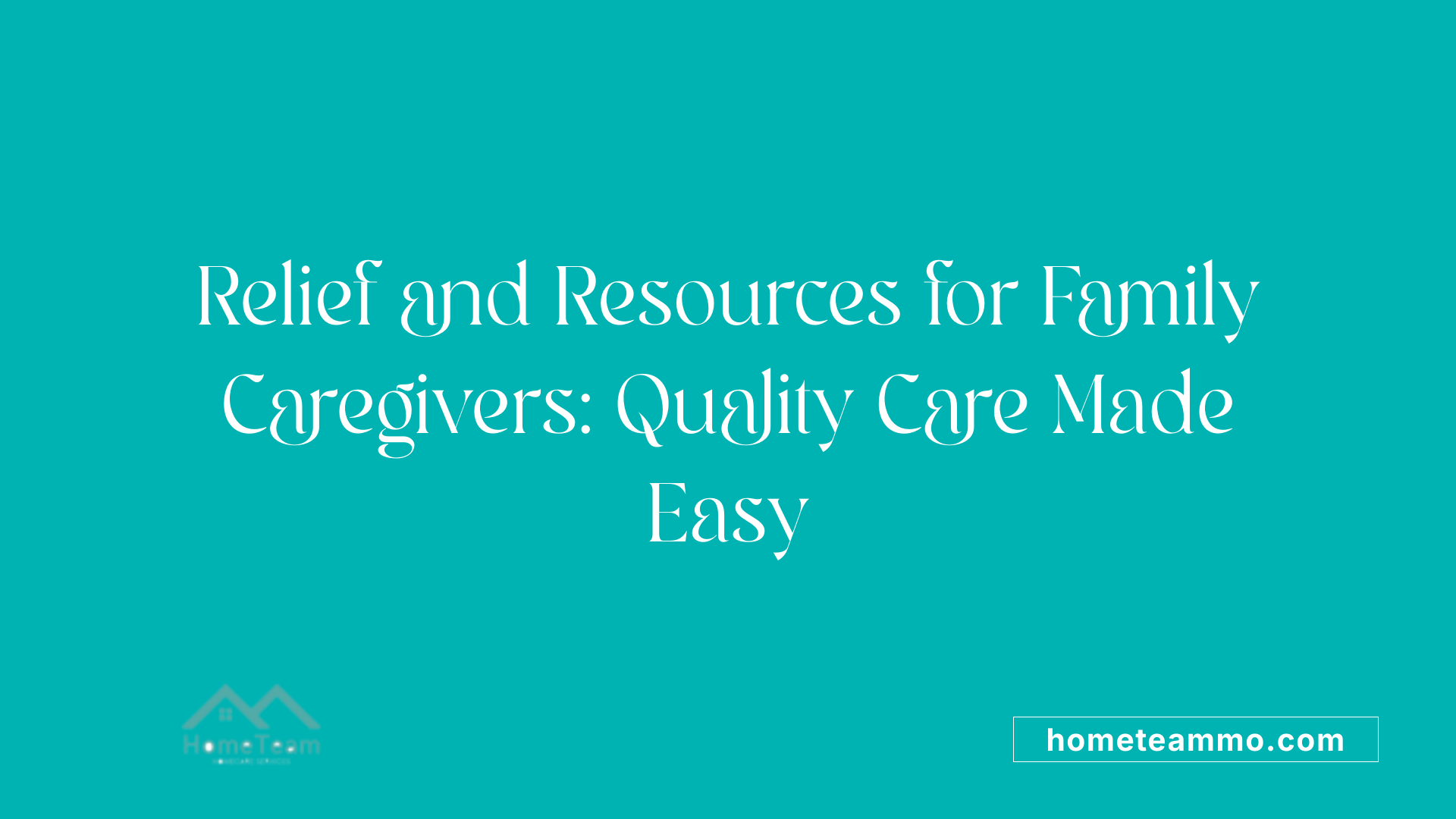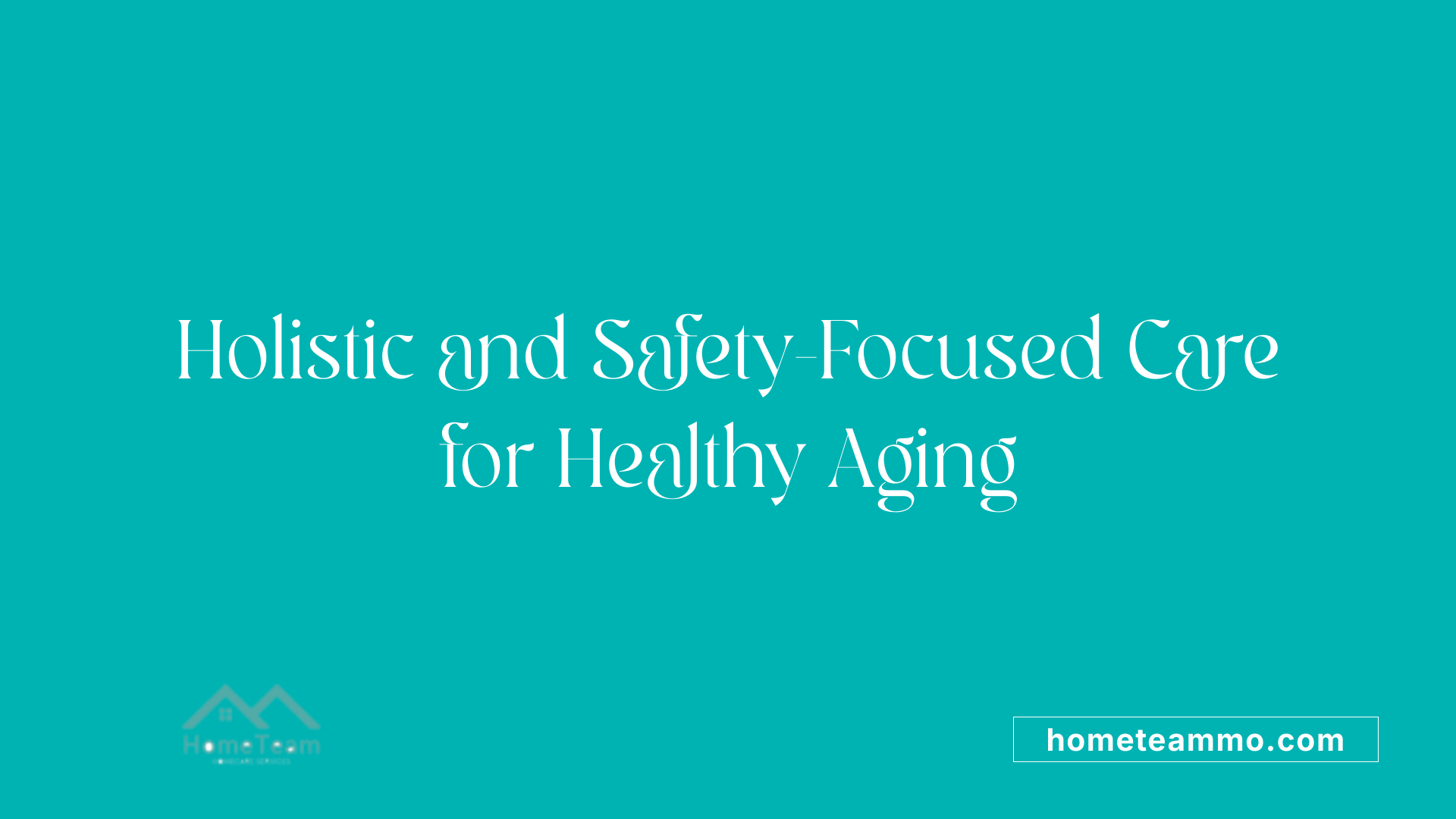How Home Team's Caregivers Provide Peace of Mind for Families
Trusted In-Home Support Ensures Family Confidence

Providing Peace of Mind Through Compassionate Care
In the realm of elder care, the presence of dedicated home caregivers offers families reassurance and emotional security. Through personalized support, professional training, and emotional engagement, home caregiving services like those offered by Hired Hands Homecare and Faith Home Healthcare ensure that seniors enjoy safety, independence, and a dignified quality of life in their familiar surroundings. This article explores how skilled caregivers foster peace of mind, support family dynamics, and promote well-being for both seniors and their loved ones.
The Role and Impact of Professional Home Caregivers

What are the benefits of professional caregiving services in elder care?
Professional caregiving services deliver numerous advantages that significantly improve the lives of seniors and their families. These services provide tailored, high-quality support that fosters independence while maintaining safety. Caregivers assist with vital daily tasks such as bathing, dressing, preparing nutritious meals, and managing medications, ensuring consistent and accurate care.
Beyond physical assistance, caregivers also offer emotional support through companionship, helping to combat loneliness and depression commonly experienced by older adults. Their involvement eases the caregiving burden on families, offering crucial respite and reducing stress.
These services promote aging in place—allowing seniors to stay comfortably in their homes—while adapting to complex medical and personal needs. With personalized attention, safety improvements, and emotional comfort, professional elder care contributes to healthier, more fulfilling lives for seniors.
How do home caregivers support families and provide peace of mind?
Home caregivers support families by creating a safe, reliable, and compassionate environment for their loved ones. They handle routine care tasks such as medication reminders, mobility assistance, and personal hygiene, which reassures families that their loved ones are well looked after.
In addition, caregivers conduct safety assessments, implement fall prevention strategies, and sometimes install safety features that protect against accidents. Skilled in emergency response, they are prepared to react promptly if urgent situations arise, further alleviating family worries.
Consistent communication with families keeps loved ones updated on health and well-being, fostering trust and transparency. Providing education, respite care, and system navigation support helps family members manage stress and ensures they feel confident that their relatives are in capable hands.
Supporting aging in place and managing complex health needs
Home care services actively support the ability of seniors to age in their familiar environment. With specialized training in aging care, caregivers help manage chronic conditions such as Alzheimer’s and Parkinson’s disease, ensuring safety and comfort.
Developing personalized care plans allows for tailored support that respects individual health requirements and personal routines. These plans encompass medication management, symptom monitoring, and health oversight, contributing to better health outcomes.
By offering flexible services—from occasional visits to continuous live-in care—home caregivers adapt to changing needs, facilitating a seamless transition during health fluctuations. Their expertise is vital in handling emergencies, conducting wound care, and supporting mental health, altogether promoting a higher quality of life for seniors and peace of mind for their families.
Supporting Family Caregivers with Respite and Resources

How can caregiving services help family members and caregivers?
Caregiving services play a vital role in supporting family members by providing practical relief and emotional reassurance. They offer respite care, which allows family caregivers to take much-needed breaks from their responsibilities, reducing stress and preventing burnout. In-home support includes assistance with daily activities such as meal preparation, bathing, dressing, and transportation, ensuring seniors remain safe and independent at home.
Professional caregivers also specialize in medical management tasks like medication administration, health monitoring, and handling complex conditions like Alzheimer’s or Parkinson’s. Access to community resources, support groups, and training programs equips family caregivers with knowledge and confidence to manage care effectively. Funding opportunities from government programs, insurance, and local organizations make these services more accessible, ultimately improving quality of life for both caregivers and their loved ones.
By combining practical assistance with emotional support, caregiving services foster a more manageable caregiving experience and promote the well-being of seniors in their familiar environment.
Ensuring Compassionate and Health-Conscious Care

How do caregivers adopt a holistic caregiving approach?
Caregivers employ a comprehensive strategy that attends not just to the physical health but also to the emotional, spiritual, social, and intellectual needs of seniors. They recognize that well-being involves multiple facets, so they incorporate activities and routines that promote mental stimulation, social engagement, and spiritual comfort. This may include facilitating social interactions or spiritual practices tailored to the individual's beliefs and preferences.
What practices support caregiver self-care and resilience?
Maintaining personal health is crucial for providing quality care. Caregivers stay resilient by engaging in regular exercise, consuming nutritious meals, ensuring sufficient sleep, and managing stress through mindfulness or relaxation techniques. Building strong social networks and seeking emotional support from peers, friends, or support groups help reduce feelings of isolation and burnout. Mindfulness practices like breathing exercises or mindful movement can mitigate stress and improve emotional resilience.
How important is ongoing professional development for caregivers?
Continual learning forms a vital part of high-quality caregiving. Caregivers pursue professional training that updates their knowledge on managing chronic conditions, safety protocols, and new healthcare techniques. This ongoing education ensures they are equipped to handle complex health needs, conduct safe mobility assistance, and administer medications accurately. Training also fosters confidence and empathy, enabling caregivers to respond compassionately to both medical and emotional needs.
What safety and health monitoring tools do caregivers utilize?
To provide health-conscious care, caregivers leverage various monitoring tools, such as digital health devices that track vital signs, medication reminders, and safety sensors for fall prevention. These tools enable early detection of health changes, allowing for timely intervention. Proper documentation and communication with medical professionals are supported by these tools, ensuring continuous, coordinated care.
Why is a balanced caregiving approach essential?
Employing a holistic, resilient, and well-informed approach ensures caregivers can deliver empathetic, effective support while maintaining their personal health. This combination reduces caregiver stress, improves the quality of life for seniors, and sustains a compassionate care environment.
| Aspect | Practices and Tools | Impact |
|---|---|---|
| Holistic wellness | Physical activity, spiritual activities | Enhanced overall well-being |
| Self-care and resilience | Mindfulness, social connections | Reduced burnout, emotional stability |
| Professional development | Continuing education, skill training | Better management of complex needs |
| Safety and health monitoring | Digital health devices, sensors | Early detection, improved safety |
| Overall caregiving approach | Personalized, compassionate routines | Increased emotional health and trust |
In sum, adopting a comprehensive, informed, and compassionate approach through continuous training, self-care, and effective use of technology ensures caregivers deliver high-quality, health-conscious care while safeguarding their own well-being.
Fostering Family Unity with Personalized Care
Why is personalized, professional care important in supporting family dynamics?
Personalized, professional care plays a vital role in strengthening family cohesion and ensuring that each loved one's unique needs are met with respect and understanding. It recognizes individual preferences, cultural backgrounds, and specific health conditions, creating a care environment that feels respectful and supportive.
By involving family members in care planning, professionals foster open and transparent communication. This collaborative approach helps families better understand the care process and actively participate, which enhances their confidence and trust in the support provided.
Practitioners trained in family-centered principles develop structured communication models that respond to complex family relationships, reducing misunderstandings or conflicts. They leverage the strengths and resources of each family to promote harmony within the home.
Furthermore, personalized care encourages the maintenance of the individual's dignity and independence, essential for mental well-being and happiness. When families see their loved ones thriving in a respectful, culturally sensitive manner, it helps foster peace of mind and reduces family stress.
Ultimately, integrating personalized care strategies nurtures stronger, more collaborative partnerships between families and healthcare professionals. This approach leads to more effective, culturally sensitive, and sustainable elder care, creating a supportive environment where families feel valued and empowered.
Empowering Families Through Expert Care
Ultimately, home caregivers serve as vital partners in elder care, offering not only physical assistance but also emotional support that fosters trust, independence, and peace of mind. Through personalized care plans, ongoing education, and compassionate engagement, they help families navigate the challenges of aging with confidence. The comprehensive support provided by professional caregiving services ensures that seniors remain in familiar environments, promoting their dignity and happiness while alleviating the stresses that caregiving often entails. As a result, families can focus on their relationships and personal well-being, knowing that their loved ones are in caring and capable hands, strengthening the bonds that sustain them.
References
- Support for Family Caregivers Brings Peace of Mind
- How In-Home Care Supports Family Caregivers | Touching Hearts
- How Home Health Care is Handing Families Their Freedom Back
- How Home Healthcare Supports Family Caregivers
- 8 Ways In-Home Care Services Can Boost Your Family's Quality of Life
- 24/7 Home Care: Ensuring Safety and Comfort for Your Loved Ones
- The Role of Family Caregivers in Hospice at Home | WesleyLife
- How Does Home Care Support Family Caregivers? - Visiting Angels
- The Importance of Caregivers | Visiting Angels Flagstaff

How to Plan for Long-Term Home Care Services

How Home Team Helps Families Make Informed Care Decisions

Mobility Support: Safe Transfer and Lifting Techniques



